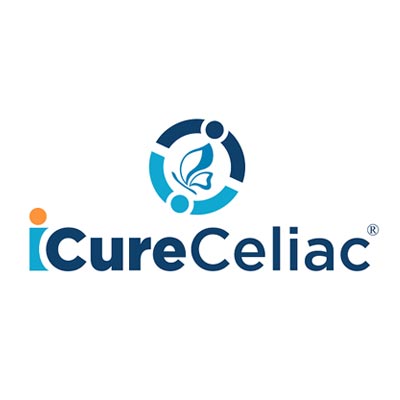2020 Year in Review
By any measure, 2020 has been an exceptionally difficult year. The Celiac Disease Foundation has continued to press forward on multiple fronts to accelerate research, as well as to improve the quality of life for celiac disease patients and those who love them. What follows is an overview of our work in 2020, made possible by the sustained generosity of our individual donors and corporate partners.
Advocacy
Washington, DC, has been consumed by the COVID-19 pandemic and the election. As a result, we have worked hard to maintain the momentum generated last year with Congress, NIH, and the other federal health agencies. In addition to securing language in the 2020 Federal budget directing NIH to study celiac disease, and a record 22,000 emails generated in support of the Gluten in Medicine Disclosure Act of 2019, there were a number of notable successes.
Patient Advocacy The Foundation hosted the first National Celiac Disease Patient Advocacy Summit in Washington, DC, at the offices of our advocacy counsel, Baker Donelson. Patient Advocates from across the country were briefed by a number of the leading celiac disease researchers, by experts at the Food and Drug Administration, and by Congressional staffers working in federal health policy on how to advocate for celiac disease public policy priorities to their respective Congressional Members in their home states, and to organize their own patient communities to do the same. The day prior, Patient Advocates blanketed Capitol Hill, meeting with Reps. Cole (R-OK) and Ryan (D-OH), and staffers for Reps. McCollum (D-MN) and Degette (D-CO) and Senator Blumenthal (D-CT), all of whom have influence with key federal agencies. In response to the pandemic, in June, the Foundation launched iAdvocate, an online State Advocacy Ambassador training program and Forum, to allow celiac disease advocates to drive policy change virtually, and in person.
Consensus Workshop Just prior to the pandemic lockdowns, the Foundation sponsored the Society for the Study of Celiac Disease First Consensus Workshop: Research Opportunities in Celiac Disease 2020 at Columbia University bringing together an international roster of leading celiac researchers to consider the current state of celiac disease research and to inform NIH funding priorities. A representative of NIH’s National Institute of Allergy and Infectious Diseases was in attendance to understand how the study of celiac disease is a gateway to discoveries for other autoimmune diseases.
NIH Funding Priorities Based upon the findings of the March Consensus Workshop, the Foundation and a team of leading researchers were asked to present celiac disease for the first time ever to NIH’s multi-institute Autoimmune Diseases Coordinating Committee. CEO Marilyn G. Geller, MSPH, presented iCureCeliac research findings in Unmet Need in Celiac Disease – Patients’ Views. Bana Jabri, MD, PhD, of the University of Chicago, spoke on Basic Research, Unmet Needs and Opportunities. Joseph Murray, MD, of the Mayo Clinic, followed with Clinical-Translational Research: Gaps and Opportunities in Prevention and Diagnosis. Ciarán Kelly, MD, of Harvard Medical School, closed with Non-dietary treatments for celiac disease: Why? Who? What?
Medical Nutrition Therapy Senators Collins (R-ME) and Peters (D-MI) introduced bipartisan legislation, S.4504, to expand Medicare beneficiaries’ access to Medical Nutrition Therapy (MNT) to include celiac disease and other conditions, companion legislation to H.R.6971, introduced in May by Reps. Engel (D-NY) and King (R-NY). A long-time Foundation public policy priority, these bills provide coverage for dietitian visits for the newly diagnosed, and for those who continue to struggle on a gluten-free diet. To support this expanded MNT legislation, Foundation constituents have generated more than 2,100 emails to Congress, with the goal of compelling state Medicaid programs and private insurers to offer similar coverage.
Research
In addition to the Consensus Workshop and presentation to NIH’s Autoimmune Diseases Coordinating Committee, the Foundation’s strategic and substantial investments in celiac disease research continued to yield significant breakthroughs.
iCureCeliac Patient Registry Findings Researchers published three important studies about celiac disease using the iCureCeliac® patient registry database as the data source. The first study was published in the Journal of American Medical Association (JAMA) and is titled Prevalence of Dermatitis Herpetiformis Within the iCureCeliac Patient-Powered Research Network-Patient Characteristics and Dietary Counseling. Results of the University of Pennsylvania study showed patients with dermatitis herpetiformis (DH) were less likely to recall receiving counseling on a gluten-free diet at the time of diagnosis when compared with patients with celiac disease but without DH. As a result, DH patients who fail to adopt a strict gluten-free diet within the first 5 years of diagnosis may have an increased risk of mortality from lymphoma in this period of time. The second study, Disease burden and quality of life impacts in patients with celiac disease on a gluten-free diet: an analysis of the iCureCeliac registry, was presented as a poster at the United European Gastroenterology Week Virtual 2020 Congress and at the American College of Gastroenterology 2020 Virtual Annual Scientific Meeting. Authored by researchers from Takeda Pharmaceuticals and the Celiac Disease Foundation, the study presents compelling evidence that, ‘despite gluten-free diet adherence, many patients with celiac disease still have symptoms that substantially impact their lives, continuing to substantiate the need for treatment alternatives to the gluten-free diet. Probiotics Use in Celiac Disease: Results from a National Survey, the third study, was also presented at ACG 2020 Virtual and is an Outstanding Poster Presenter recipient. Led by Andrew Joelson, MD, Gastroenterology Fellow at the Celiac Disease Center at Columbia University, the study examined probiotic use in the Foundation’s iCureCeliac® patient registry population, finding that about one-third of patients reported using probiotics to treat persistent symptoms, indicating that patients are seeking treatment for persistent symptoms, despite following a gluten-free diet.
COVID-19 Celiac Disease Registry The Foundation partnered with Columbia University and McMaster University to recruit 18,022 patients for an international study on celiac disease and COVID-19. Researchers published results that concluded patients with CeD have similar odds of contracting COVID-19 and may not need to take additional precautions to prevent exposure aside from that recommended to the general public.
To date, the Celiac Disease Foundation has recruited for 18 trials and studies. In 2020, the Foundation recruited patients for five studies, including the world’s largest celiac disease diagnostic study.
Clinical Trial Patient Recruitment The Foundation is the nation’s leading clinical trial patient recruiter for celiac disease. Backed by critical research tools, iCureCeliac and iQualifyCeliac, the Foundation began recruiting for clinical trials at the request of celiac disease researchers who were concerned about the exorbitant cost to fill clinical trials with qualified participants — costs that were inhibiting celiac disease drug development. To date, the Foundation has recruited for 18 trials and studies. In 2020, the Foundation recruited patients for five studies, including the world’s largest celiac disease diagnostic study, the At-Home Celiac Disease Study, to assist researchers in developing a diagnostic test that would not require gluten ingestion nor a biopsy to confirm a celiac disease diagnosis. The Foundation also launched recruitment for the PROACTIVE Celiac Study, a promising multi-country phase 2 trial for a therapeutic for accidental gluten exposure.
Young Investigator Awards In 2019, the Foundation awarded three three-year research grants totaling more than $500,000 to Dr. Valerie Abadie of the University of Chicago, Dr. Benjamin Lebwohl of Columbia University, and Dr. Jocelyn Silvester of the Harvard Medical Research Group. Published in Nature in February, Dr. Abadie led the study team for “IL-15 gluten and HLA-DQA drive tissue destruction in coeliac disease” creating the first mouse model which allows researchers to observe the onset of celiac disease as the mouse’s immune system launches a coordinated attack against gluten. Future research will address what initial stressors provoke the gut lining to overproduce interleukin-15, a stress signal protein, causing the production of anti-tissue transglutaminase which destroys the gut lining. Dr. Abadie is also studying the role of B cells to explore how to suppress this immune process. Published in JAMA in April, Dr. Lebwoh’s study “Association Between Celiac Disease and Mortality Risk in a Swedish Population” found that having celiac disease was associated with a small but statistically significant increased mortality risk from cardiovascular disease, cancer, and respiratory diseases such as flu and pneumonia. Dr. Lebwohl will next study the specific conditions that may contribute to this mortality risk. Published in Alimentary Pharmacology and Therapeutics in September, Dr. Silvester studied “Exposure sources, amounts and time course of gluten ingestion and excretion in patients with coeliac disease on a gluten-free diet,” finding that people with celiac disease are frequently exposed to gluten in food they believe to be gluten-free. Follow up research will address if these repeated small exposures bear any significance in terms of symptoms, healing rates, and long-term risks.
Education
Hosting the world’s most trafficked website for celiac disease, celiac.org remains the single most trusted source of information on the web for diagnosis, gluten-free diet management, news, research, and patient support. The companion app, Eat! Gluten-Free is a one-stop destination for all things gluten-free including the latest blog news, recipes, and products. The Foundation’s focused investment in healthcare provider and patient education continues to help end the needless suffering of millions.
Medical Symposiums In March, just prior to the pandemic shutdown, the Celiac Disease Foundation sponsored the Celiac Disease Center at Columbia University Biennial Symposium, Celiac Disease: Now and the Future. Bringing together an international audience of researchers, clinicians, and patients, the symposium focused on the latest research in the epidemiology, diagnosis, and management of celiac disease and other gluten-related disorders. The Foundation was also a sponsor to the University of Chicago’s virtual Celiac Disease Autoimmunity and Beyond symposium in November, bringing together the medical and patient communities and featuring experts from the Celiac Disease Foundation Medical Advisory Board and Research Committee.
Dietitian Training The Foundation is committed to improving the quality of life of celiac patients. This includes advocating for every diagnosed patient to receive nutrition counseling to help manage a gluten-free diet. In addition to supporting federal legislation to expand Medical Nutrition Therapy coverage to include celiac disease, we funded the development of the Academy of Nutrition and Dietetics Certificate of Training Program in Treating Gluten-Related Disorders to increase the pool of dietitians skilled in celiac disease. To encourage enrollment, in partnership with Proud Sponsor Schar, the Foundation is also offering reimbursement grants to registered dietitian nutritionists who complete the certificate program.
COVID-19 Resource Center Committed to bringing up-to-date information about the coronavirus health risks for people with celiac disease, in March, the Foundation launched a COVID-19 hub providing resources to more than 170,000 people for coping with the pandemic and immediate access to gluten-free food and products. The Foundation also partnered with the nation’s celiac disease programs to create a telehealth directory allowing celiac disease patients, for the first time, to meet virtually with the leading experts in celiac disease.
Managing Celiac Disease in School In partnership with Children’s National Hospital and 45 stakeholder experts from across multiple disciplines of health, wellness, and education, the Foundation created Managing Celiac Disease in Learning Environments: A Training Program for Educators, Food Service Providers, Health Professionals, and Patient Families. Children with celiac disease are entitled to accommodations in schools that accept federal funds through Section 504 of the Rehabilitation Act of 1973. A 504 Plan is the method of detailing what these accommodations are. This training program is the first definitive guidance for schools and parents or caregivers on what is medically and psychologically necessary for a child with celiac disease to succeed.
Student Ambassadors and Team Gluten-Free Despite the pandemic, our grassroots volunteers continued to educate their communities about the seriousness of celiac disease, and to raise critical funds for research. More than 2,500 supporters with celiac disease, and their loved ones, rallied to make the 2020 CDF Turkey Trot Virtual Cross-Country Challenge a phenomenal success. While creating their own health adventures as they mapped their steps on the Walker Tracker app from New York to the Celiac Disease Foundation headquarters in Los Angeles, participants and their pets raised $200,000 to support the Foundation’s research efforts. Participants were rewarded with sponsor offers and coupons as they passed through ten landmarks, with many sharing that the greatest prize, after months of isolation, was their strengthened connection with the celiac community.




